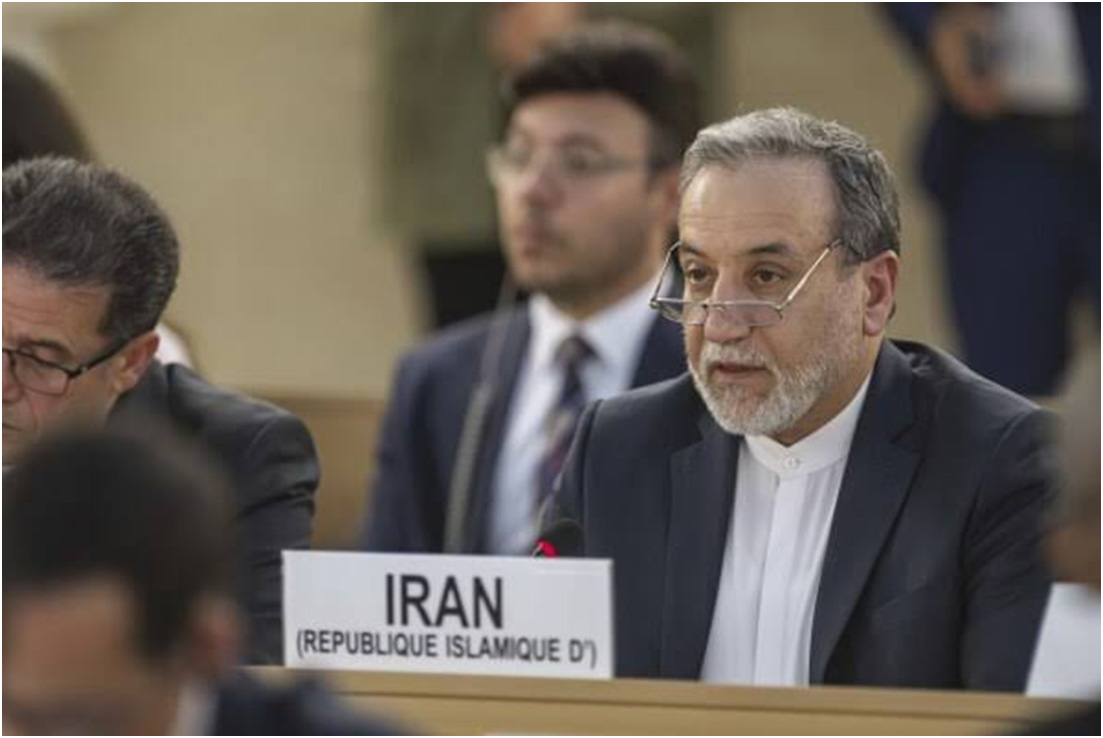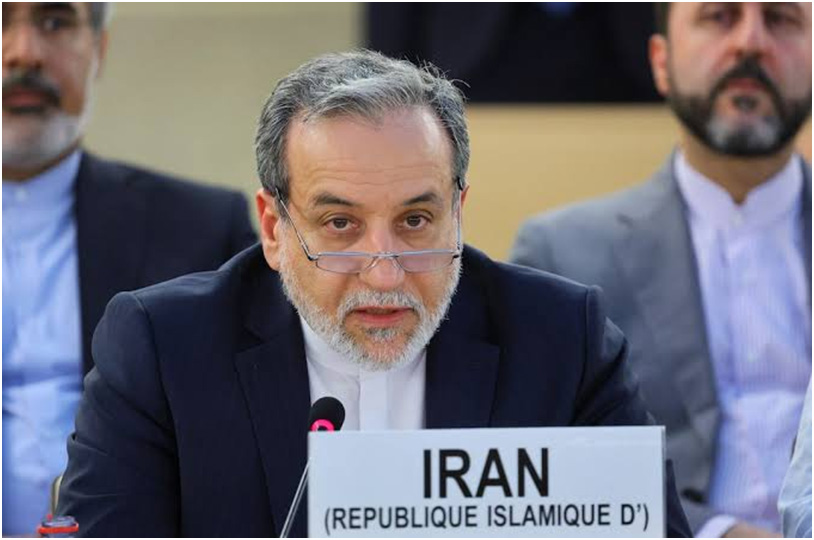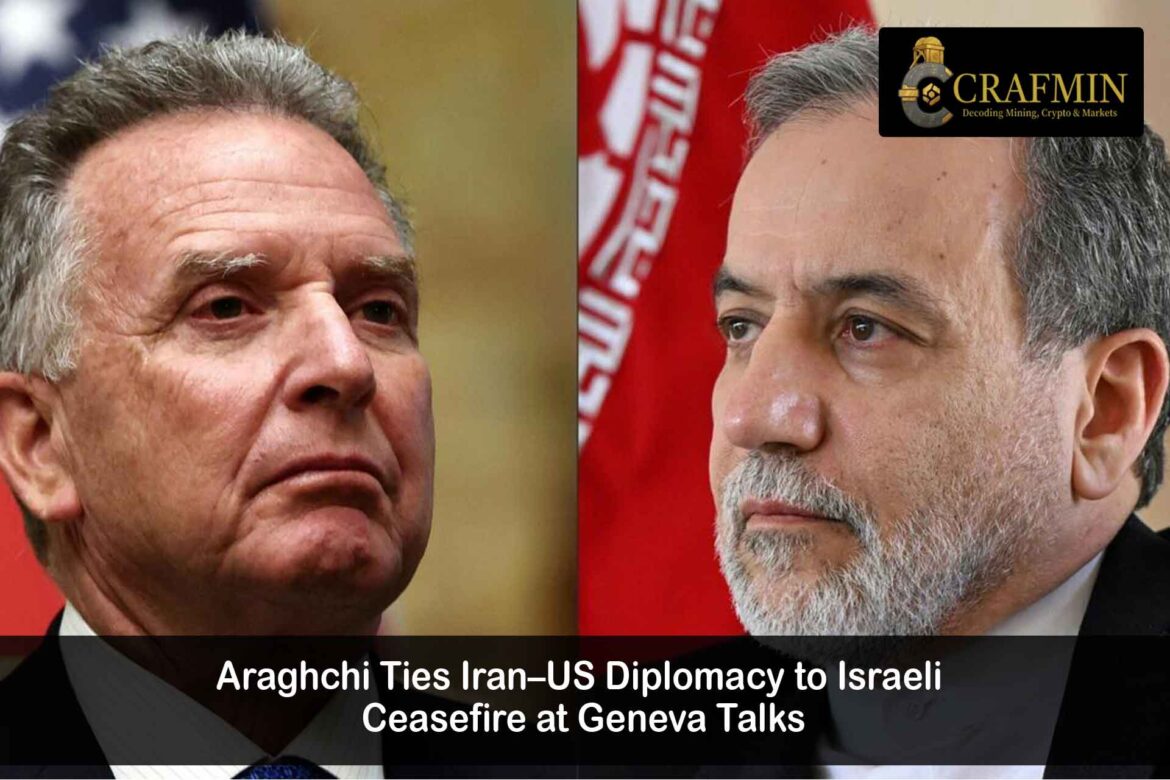In Geneva this week, Iran’s deputy foreign minister Abbas Araghchi delivered a seismic diplomatic pivot: any prospect of restoring dialogues with the United States is contingent on an immediate cessation of Israeli military operations in the region. Addressing Western envoys in Geneva, Araghchi made clear that Tehran sees no path to renewed U.S. engagement until Israel stops its campaign and faces international accountability for what Iran terms “aggression”.

Iran’s Abbas Araghchi during tense talks with European foreign ministers.
Source: AP News
A Diplomatic Crossroads in Geneva
The Geneva foreign ministers gathering—comprising representatives from the European Union, the UK, France, and other Western powers—was intended to de-escalate regional tensions. Yet, Araghchi’s uncompromising demand reshaped the agenda. He emphasized that without halting Israeli military action, Iran will not resume nuclear or security negotiations with the U.S.
“Diplomacy cannot proceed under fire,” he stated, framing Israel’s sustained bombardment as a barrier that undermines any trust-building between Washington and Tehran . European leaders now face a challenging choice—find middle ground without appearing to concede to Tehran’s terms, or brace for further diplomatic gridlock.
European Mediators Walk a Tightrope
European officials, including UK Foreign Secretary David Lammy and France’s Jean‑Noël Barrot, clearly urged Iran to separate Israeli actions from U.S. dialogue. They stressed that pending Iran’s nuclear obligations didn’t have to be stalled over unrelated military campaigns. Despite backing Iran’s right to protest what it sees as Israeli overreach, the diplomats insisted the nuclear track should remain distinct from broader conflict .
Yet, Iran remained firm. Araghchi responded by accusing Western capitals of enabling Israeli policy, calling for enforceable action—not just rhetorical criticism. His message: until Israel’s operations stop, trust remains elusive.
U.S. Position: Offstage but Influential
While not present in Geneva, the U.S. government looms large in the discussions. Former President Trump, now a vocal advocate for Israeli strategy, refrained from calling for ceasefires—telling Fox News, “If Israel is winning, we don’t want to weaken them.” Nevertheless, he asserted that Washington remains open to “indirect diplomacy” with Iran, albeit in the absence of aggressive conditions .
Inside national security circles in Washington, there is serious concern: Iran’s conditions could stall vital talks on nuclear inspections and limit U.S.-led non-proliferation diplomacy. At the same time, some hawks view Araghchi’s position as an indication that Iran too wants the diplomatic door kept ajar—however narrowly.
Also Read: Messi Inter Miami Winner Propels MLS Giants into CWC Spotlight
Strategic Stakes: A Deeper View
It’s approach isn’t merely about Israeli actions—it reflects broader geopolitical anxieties. Facing domestic unrest and deep economic pressure, Iran benefits from portraying itself as a principled actor calling for restraint. By shifting the locus of blame onto Israel, Araghchi can unite regional and global critics of Israel, while decoupling nuclear negotiations from battlefield dynamics .
For Israel and its allies, folding under Iranian pressure risks setting a precedent: military actions could routinely be used as diplomatic vetoes, crippling future conflict responses. On the other hand, pushing back risks diminishing the efficacy of European mediating efforts—and possibly, narrowing U.S. influence in elite diplomacy circles.
What Comes Next: Scenarios to Watch
- Stalemate Continues — Iran reinforces that its stance is permanent. Without an Israeli ceasefire, diplomacy with the U.S. remains frozen, prompting Europe to formalize separate backchannel discussions on nuclear issues alone.
- Stop for Diplomatic Release — Feeling pressure from NATO partners and global public opinion, Israel and the U.S. agree to a temporary pause or humanitarian truce. This could pave the way for parallel negotiations: one stopping military aggression, the other restarting nuclear diplomacy.
- Double Track with European Agency — Europe unites to launch a dual-channel initiative: a phased ceasefire enforced by international observers, alongside nascent nuclear discussions with Iran. The U.S. remains consultative but stays in the aviation booth—observing, but not controlling.

Foreign ministers confer in Geneva as Iran’s ultimatum echoes.
Source: Reuters
Final Word: A Diplomatic Catch‑22
The condition set by Araghchi is stark: without an Israeli halt, U.S.–Iran diplomacy remains off-limits. This stance amplifies divisions across global powers, while spotlighting the tension between national sovereignty and regional peace. The world now watches: will diplomacy break through these hard lines, or will mounting hostilities plunge us deeper into polarisation?

